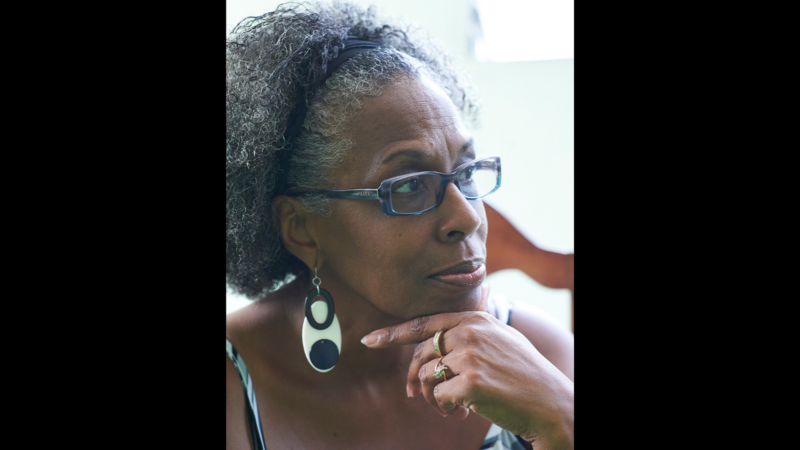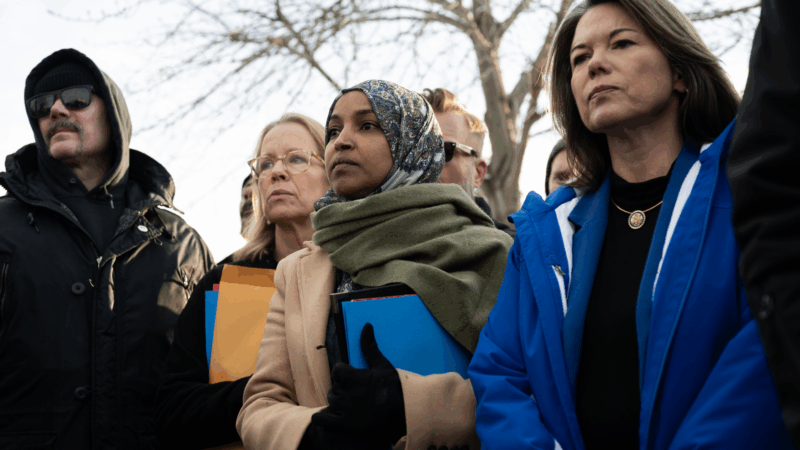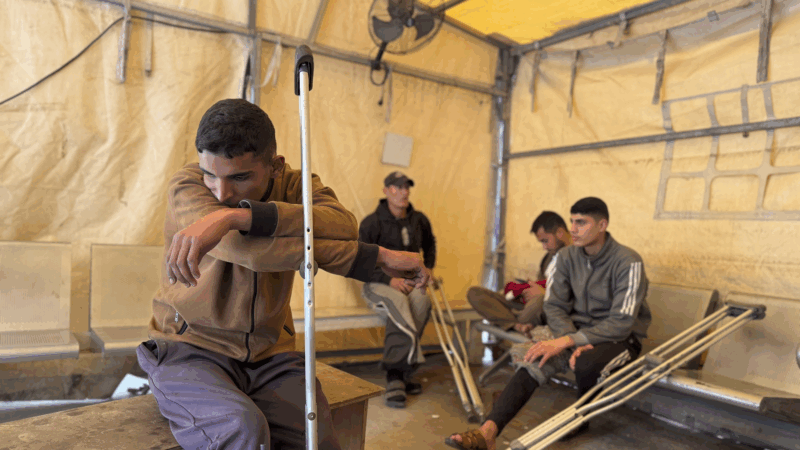Remembering Margaret Walker 50 years later, as her groundbreaking poetry festival returns to Jackson
Maryemma Graham will be a guest speaker for “A Tribute to Margaret Walker” at the Phillis Wheatley Poetry Festival in Jackson, Mississippi. In 2022, Graham published the first complete biography of Walker.
In 1973, novelist and professor Margaret Walker Alexander created the Phillis Wheatley Festival. It brought Black poets, writers and creatives to Jackson, Mississippi, and helped preserve Black history through literature.
Fifty years later, the city is again hosting the festival. This year, seven writers who were there in 1973 — including Alice Walker and Sonia Sonchez — will be joined by newer voices like Mississippians Jesmyn Ward and Angie Thomas.
Maryemma Graham recently published the first complete biography of Walker’s life, “The House Where My Soul Lives.” Graham is the University Distinguished Professor of English at the University of Kansas and will be a guest speaker for the closing reception, “A Tribute to Margaret Walker.”
The Gulf States Newsroom’s Maya Miller caught up with Graham to talk about Margaret Walker’s life and legacy.
The following transcription has been edited and condensed for clarity.
For listeners who may not know who Margaret Walker is, could you tell us a little bit about her?
Margaret Walker is a 20th-century figure. Not only was she a poet, novelist, writer, intellectual, she was an academic. She was a teacher, and most of that career was at Jackson State University, where she went in right in the middle of the century — 1949 — and never went anyplace else.
She moved from the radio to the television to film to video, and she had access to all of those networks, but she did it from Jackson, Mississippi.
I think her view was that the state had had such a horrible history. We have tremendous potential in this place to change that image. She started bringing people to Mississippi, and one of the things she did that was so powerful was the Phillis Wheatley Festival in 1973.
She brought attention to the power of Black literature and to the power of Black women’s participation — in this case, inauguration of a tradition.
Margaret Walker faced immense success with “Jubilee.” That was her historical novel about a young enslaved woman in Georgia during the Civil War. But she also faced hardships as a Black academic and a creative. Can you talk a little bit about that?
Absolutely. Walker’s work was recognized. She was honored. Everybody knew that “Jubilee” was an important work, but she also recognized that that work had been plagiarized in Alex Haley’s “Roots.” By the time that truth was uncovered and Haley’s work was proven to be built on other people’s works as well, Haley was dead, but Walker’s career had already suffered.
‘She was jealous,’ people said, and nobody came to her rescue. So, she went from fame to infamy overnight, in a sense, and she never really recovered in terms of her literary career. She remained, of course, a powerful voice, but she suffered miserably as a result of that.
Tell us more about publishing the biography of Margaret Walker, because it was a process that took nearly 20 years.
For me, the question was there’s a lot of story here. First of all, Walker left over 150 journals. She journaled. She recorded her own life, so she left me a treasure trove, and I had to read every single page to know her as best I could. That was the obligation I had as a biographer.
Putting it all together, and then having life happen to me as well, took two decades, but I learned a lot.
And what I have also learned is that we have too far few women’s biographies, particularly Black women. I hope that it encourages people to tell more of those stories. We have very, very few still.
In what ways did you change as a scholar and a creative in the time you began this project to holding the published book in your hands?
Biography is a hard genre to master, is the first thing. You’re responsible for somebody else’s life. It’s easy to get confused with thinking about that being your own life. You are a caretaker. You’re holding onto threads of information that nobody knows but you. Critical decisions that you have to make. Do I leave it in? Do I leave it out? What image do I want to leave of this person?
She didn’t worry about what would happen to her. She accepted it. It was painful. She did not get the support she needed, and that is on us.
I had to tell that story in order for us to think and to realize that, if you are saying that you believe in this, you believe in Black womanhood, you believe in it, then you need to show it. We need to show it. Too many people didn’t show it.
This story was produced by the Gulf States Newsroom, a collaboration between Mississippi Public Broadcasting, WBHM in Alabama, WWNO and WRKF in Louisiana and NPR.
DHS restricts congressional visits to ICE facilities in Minneapolis with new policy
A memo from Homeland Security Secretary Kristi Noem, obtained by NPR, instructs her staff that visits should be requested at least seven days in advance.
Historic upset in English soccer’s FA Cup as Macclesfield beat holders Crystal Palace
The result marks the first time in 117 years that a side from outside the major national leagues has eliminated the reigning FA Cup holders.
Venezuela’s exiles in Chile caught between hope and uncertainty
Initial joy among Venezuela's diaspora in Chile has given way to caution, as questions grow over what Maduro's capture means for the country — and for those who fled it.
Sunday Puzzle: Pet theory
NPR's Sacha Pfeiffer plays the puzzle with KAMW listener Daniel Abramson of Albuquerque, N.M, and Weekend Edition Puzzlemaster Will Shortz.
Inside a Gaza medical clinic at risk of shutting down after an Israeli ban
A recent Israeli decision to bar Doctors Without Borders and other aid groups means international staff and aid can no longer enter Gaza or the West Bank. Local staff must rely on dwindling supplies and no international expertise.
Iran warns US troops and Israel will be targets if America strikes over protests as death toll rises
Iran's parliament speaker warned the U.S. military and Israel would be "legitimate targets" if America strikes the Islamic Republic, as threatened by President Donald Trump.








